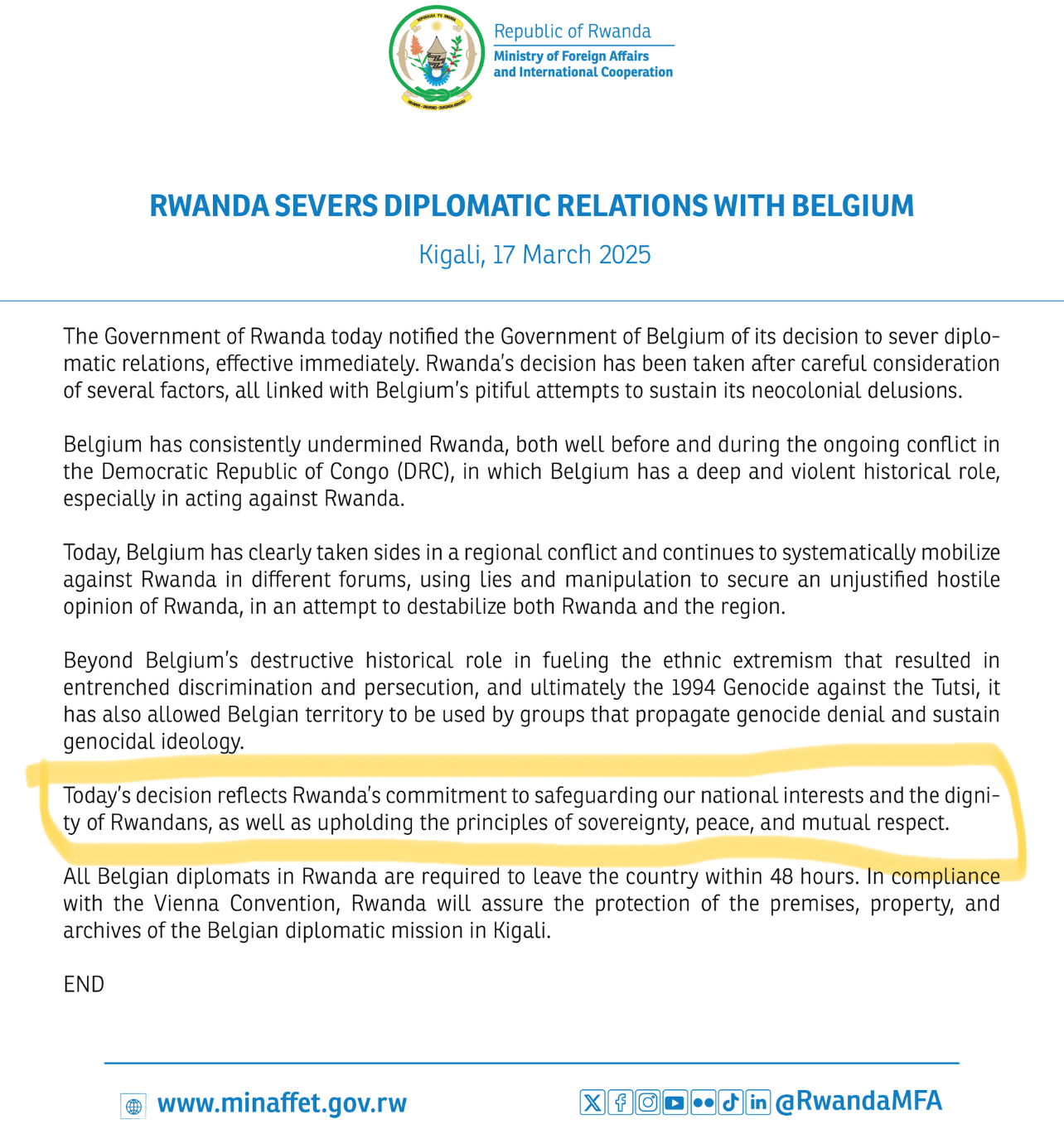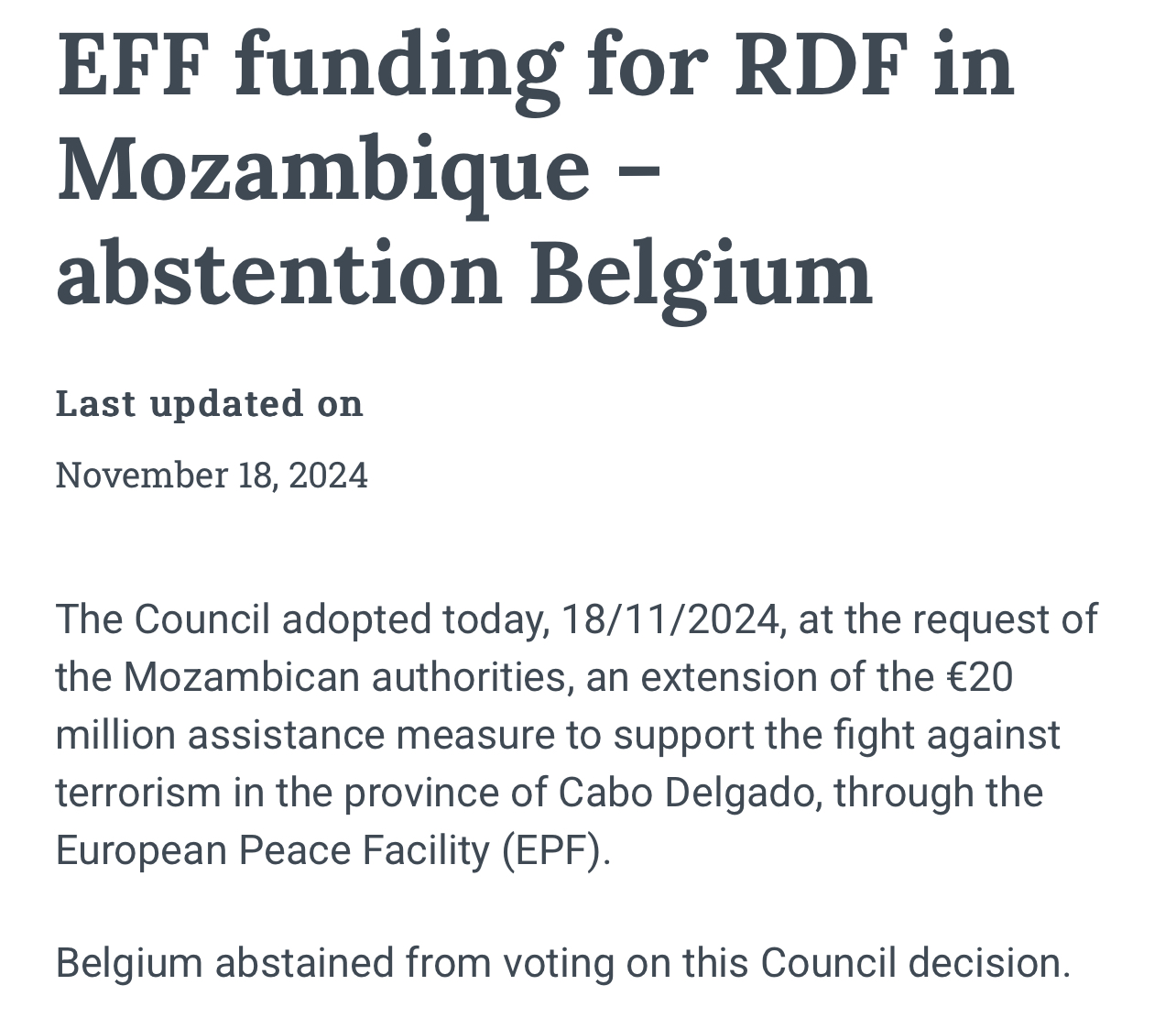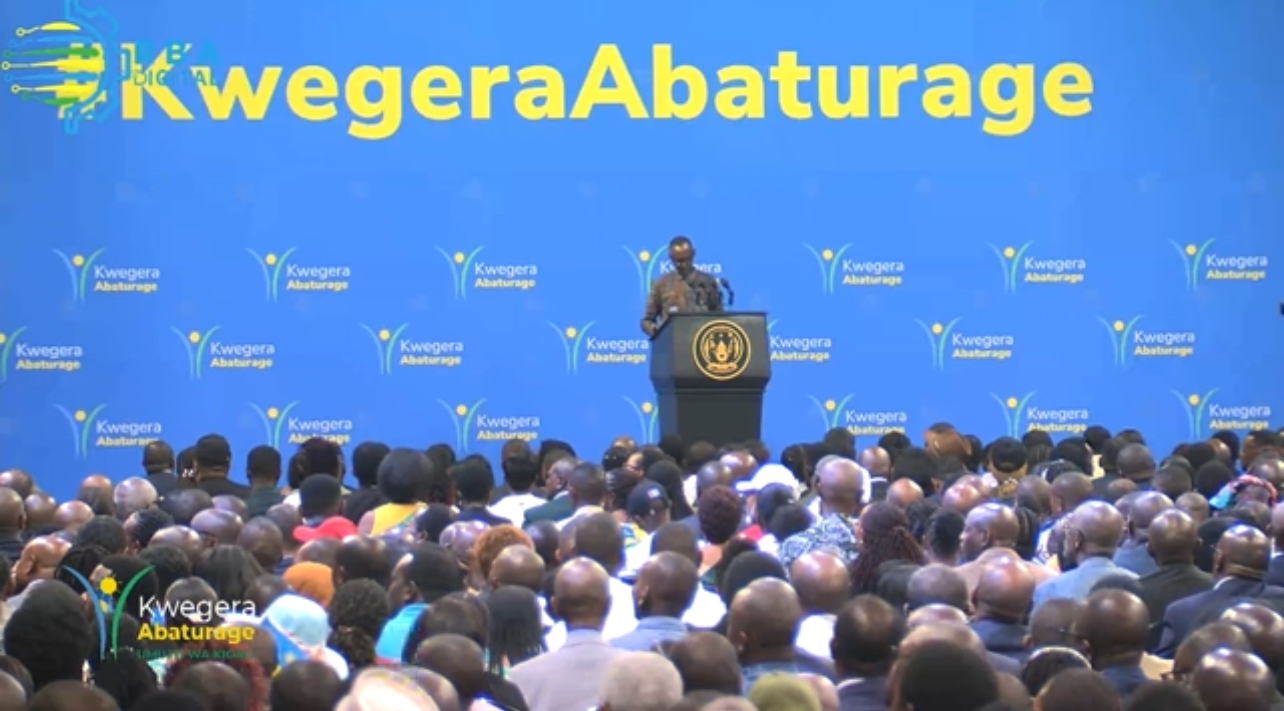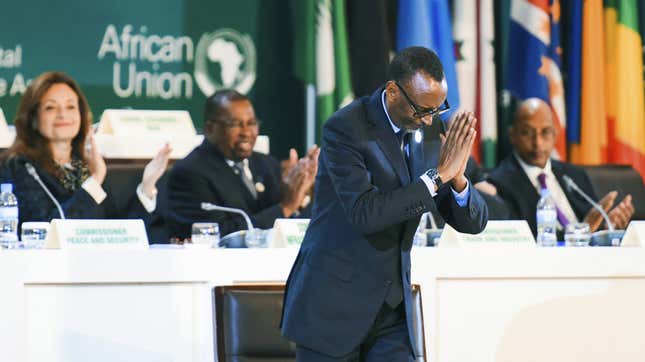Belgium is a tiny country with an oversized appetite for wealth. It has always lived off the sweat, blood, and bones of others. From its polished streets in Brussels to the diamond-clad towers of Antwerp, every brick is stained with the suffering of millions. Today, on African Liberation Day, the ancestors are awake. Their spirits are rising. The winds of justice are blowing. The graves that once held the broken bodies of the enslaved, the tortured, and the massacred are shaking with rage and triumph. One of Africa’s colonial masters—one of the most barbaric, cunning, and deceitful—has been defeated, politically, diplomatically, and morally.

Belgium didn’t conquer. It looted. It schemed. It exploited. It left no mercy in its wake. Leopold II, that butcher in a crown, ruled over the Congo as his personal slaughterhouse in 1885. His men chopped off hands as casually as one plucks fruit from a tree. The Congo River ran red with blood. The forests echoed with the screams of mutilated children. More than 10 million Congolese died to fill Belgian pockets with rubber wealth. Even Hitler, that devil of Europe, looked at Belgium’s brutality in the Congo and found it excessive.
The arrogance did not stop there. The Belgians did not just steal, they poisoned entire nations. They divided, manipulated, and betrayed. They came to Rwanda, a land of hills and unity, and left it a graveyard of division. Before Belgium, Rwandans lived under clans, not ethnic labels. But the white hands of deception rewrote history. Belgium handed out ID cards, cementing Hutu, Tutsi, and Twa as separate entities. They raised the Tutsi above the Hutu, then flipped the game when independence approached. Divide and rule. Create hate. Light the fire. Then run.
And run they did. In 1994, when the genocide began, when over a million Tutsis were slaughtered in just 100 days, Belgium fled. It pulled out its troops and abandoned Rwanda to the machetes, just as it had abandoned Lumumba to the bullets in 1961. But their cruelty was not just in standing by. Belgium helped hunt Rwandans even in exile. They chased Queen Rosalie Gicanda, a respected and gentle figure, and ensured she was dragged out of hiding and butchered in cold blood.
Belgium has always feared those who fight back. It feared Patrice Lumumba, so it had him shot, dissolved in acid, his remains scattered like dust. It feared Paul Kagame, so it tried to stop the Rwandan Patriotic Front (RPF) from ending the genocide. And when Kagame turned Rwanda from a graveyard into a powerhouse, Belgium’s hatred only deepened.
Even today, the ghosts of Belgian colonialism haunt Africa. When Rwanda sent troops to Mozambique in 2021 to help fight ISIS-linked terrorists, Belgium refused to support the mission. Why? Because it hates the RPF. Because it sees Rwanda’s military success as a threat. Because Rwanda’s help in securing Mozambique reminded Belgium of how it once backed Katangese rebels against FRELIMO, and now FRELIMO’s survival is tied to the very people Belgium despises.
Belgium is a nation of deceit. It loves to pose as a victim while robbing others. It boasts about “helping Africa” while keeping its boot on Africa’s neck. Every year, it hands out $200 million in aid to Africa, while Antwerp alone made $48 billion from diamond trading in 2022. Do the math. Belgium takes a fortune, then throws back a few crumbs and expects applause.
And Belgium’s crimes do not stop with Congo and Rwanda. Sierra Leone, a nation known for its diamonds, was cursed by the greed of Belgian financiers who fueled civil wars, backing warlords in exchange for access to the blood-soaked gems. Morocco, though never fully conquered by Belgium, suffered at its hands through backdoor deals that propped up colonial rule and economic strangulation. Central African Republic, another playground for Belgian opportunists, saw its resources drained while its people remained in chains. From Burundi to Chad, from Guinea to Angola, Belgium’s fingerprints are on Africa’s wounds.
And who benefits? The same cunning elite that have always feasted on Africa. Even Felix Tshisekedi, the so-called President of Congo, knows this truth deep down. Once, he was just a Congolese man in Brussels, hustling on the streets, selling pizzas to survive. Now, he walks through the gilded halls of the Belgian royal palace, smiling as he shakes the same hands that strangled his nation. He doesn’t see it, but the same old Belgian cunning spirits surround him. The deception is the same, the mockery unchanged. He returns home to a nation still robbed blind.
Belgium still refuses to return Congo’s stolen artifacts. It clings to its colonial wealth like a dying miser clutching his last coin. It removed a few statues of Leopold II, pretending that was enough to cleanse its sins. It renovated the Royal Museum for Central Africa, adding exhibits that “acknowledge” colonial crimes, as if a few plaques can erase a history of mass murder. It gave a weak apology for Lumumba’s death in 2002, but never returned the stolen uranium that powered the atomic bombs of World War II.
This is Belgium. A nation built on blood, run on lies, and decorated with stolen wealth. A country that lectures Africa while drowning in the filth of its own history. A land where genocide enablers pretend to be humanitarians.
But today, on African Liberation Day, the spirits of Africa are awake. The warriors, the kings, the queens, the revolutionaries—they are watching. One colonial master has fallen, politically and morally. Africa is no longer begging. Africa is no longer waiting for permission. Kagame’s Rwanda is leading the charge, defying Western arrogance, proving that an African nation can stand tall without bending to former masters.
Not everyone will say it out loud, but the continent is celebrating. Some will wear the mask of diplomacy. Some will pretend not to see the shift. But deep in the hearts of every African who knows history, there is a fire burning today. The ancestors are not silent. The winds are not still. And the world, whether it likes it or not, must now face the truth: Africa is reclaiming its place.




















